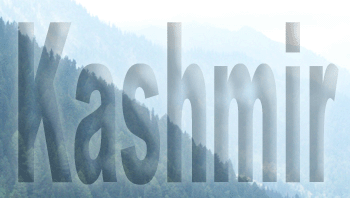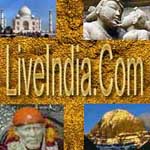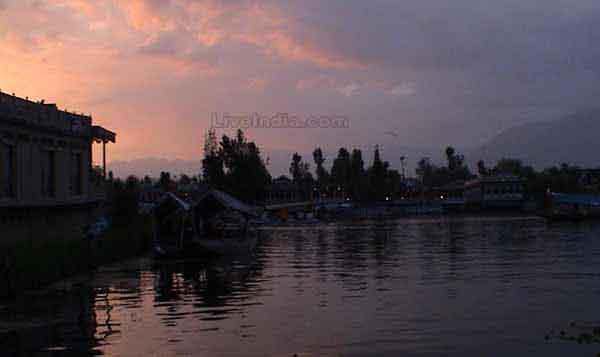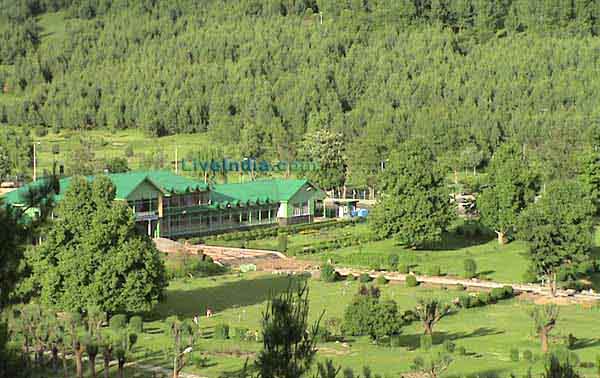| App.
3000 B.C.: |
Kashmir
clan is named in Mahabharata. |
| 2629-2564
B.C.: |
Rule
by King Sandiman. |
| 2082-2041
B.C.: |
Rule
by King Sunder Sen rules Kashmir. |
| 1048-1008
B.C.: |
King
Nara rules Kashmir. |
| 250
B.C.: |
Shrinagari
(today's Srinagar is located about three miles from Shrinagari) near the
ancient capital Pandhrenatha is founded by Ashoka the Great. |
| 7th
century: |
King
Lalitaditya builds the famous Sun temple and formed the city of Pharihaspura. |
| 813-850: |
Pampore
was founded by Padma, during the rule of King Ajatapida |
| 855-883: |
King
Avantivarman builds the town of Avantipur and the famous Sun temple. |
| 883-902: |
King
Shankaravarman builds Shankarapura-pattan (now known as Pattan). |
| 1128-1149: |
Reign
of King Jayasim. |
| mid-12th: |
Muslim
invasion of Kashmir. |
| 1322 |
Turks,
under ferocious Zulkadur Khan, first invade Kashmir. |
| 1394-1416: |
Central
Asian ruler, Sikander invades Kashmir and brings about mass conversion
to Islam. After the tyranny of Sikander was over, only eleven Kashmiri
Hindu families survive. |
| 1540: |
Mirz
Haidar, a relative of Humayun (of the Moghul invader dynasty) conquers
Kashmir. Kashmir gradually absorbed into Moghul Empire. |
| 1810-1820: |
Maharajah
Ranjit Singh, one of the greatest rulers of India, regains Jammu and appointed
his Dogra feudatory Gulab Singh to rule the State. |
| Mar
16, 1846: |
The
present State is created by a treaty between the British East India Company
acting on behalf of the British Government and Maharajah Gulab Singh in
Amritsar. |
| 1931: |
One
of the worst communal riots led by Sheikh Abdullah and his Muslim Conference. |
| 1939: |
Muslim
Conference becomes the National Conference. |
| Aug
15, 1947: |
India
gains independence. The ruler of Kashmir, Maharaja Hari Singh yet to make
up his mind regarding accession. |
| Oct
22, 1947: |
Pakistan
violates the Standstill Agreement by preventing essential supplies to the
State, then hoards of armed Pakistani tribesman entered Kashmir. |
| Oct
26, 1947: |
Hari
Singh signs the instrument of accession, it is no different than the one
signed by over 500 other rulers. The accession of Kashmir was accepted
by the Governor General of India Lord Mountbatten. |
| Oct
27, 1947: |
The
first Indian forces arrived in Kashmir to defend against Pakistani troops. |
| Dec
31, 1947: |
A
highly unconstitutional offer of plebiscite was made by Prime Minister
Nehru in the U.N. |
| Jan
1, 1948: |
India
under Nehru declares a unilateral cease-fire and under Article 35 of the
U.N. Charter, India files a complaint with the U.N. Security Council. Pakistan
still controls 2/5 of the State. |
| Jan
20, 1948: |
The
U.N. Security Council in its resolution of establishes the United Nations
Commission for India and Pakistan (UNCIP). |
| Jul
1948: |
Mohd.
Zafrulla Khan, then the Foreign Minister of Pakistan and principal Delegate
of Pakistan in the U.N. admits to the U.N. Commission for India and Pakistan
that the Pakistani Army had been in Kashmir. |
| Aug
13, 1948: |
UNCIP
adopts a resolution on Kashmir accepted by both India and Pakistan. Pakistan
is blamed for the invasion of Kashmir and is instructed to withdraw its
forces from Kashmir. |
| Jan
1, 1949: |
Amidst
great tension, one minute before midnight, India and Pakistan concluded
a formal cease fire agreement. |
| Jan
5, 1949: |
Almost
a year after Nehru's offer of plebiscite, the UNCIP passes a resolution
that states that, "The question of accession of the state of Jammu and
Kashmir to India or Pakistan will be decided through the democratic method
of free and impartial plebiscite". However, Pakistan has yet to comply
with the earlier resolution and withdraw from the State. Also, Pakistan
is now busy changing the demographic composition of the State. |
| 1949: |
Not
withstanding the opposition by several authors of the Indian Constitution,
including Dr. Ambedkar, its chief architect, Article 370 was inserted in
the constitution of India. This article is meant as a temporary measure,
to be in effect until the formal constitution of Jammu and Kashmir is drafted. |
| Jun
1948: |
Sheikh
Abdullah declares, "We the people of Jammu and Kashmir, have thrown our
lot with Indian people not in the heat of passion or a moment of despair,
but by a deliberate choice. The union of our people has been fused by the
community of ideals and common sufferings in the cause of freedom". |
| 1949: |
Following
the cabinet decision taken by the Abdullah Government, Hari Singh steps
down. Hari Singh's son, Karan Singh is named his successor. |
| Apr
1950 |
UN
Security Council appoints Sir Owen Dixon as the UN representative in place
of UNCIP to find expeditious and enduring solution to the India-Pakistan
dispute over Kashmir. |
| Oct
1950: |
General
Council of the National Conference demands elections to create a Constituent
Assembly. |
| Sep
1951: |
Elections
for the Constituent Assembly are held The National Conference wins all
45 seats unopposed. |
| Oct
1951: |
Constituent
Assembly of the State of Jammu and Kashmir is inaugurated. |
| Nov
5, 1951: |
The
Constituent Assembly is given four tasks by Sheikh Abdullah which including
the accession to India. |
| Nov-Dec
1951: |
Karan
Singh steps down as the ruler, and is elected by the Constituent Assembly
of the Jammu and Kashmir State as Sardar- i-Riyasat (Governor). |
| 1952: |
Jana
Sangh begins campaign called "Ek Vidhan Ek Pradhan" (One Constitution,
one leader) and demands that the State of Jammu and Kashmir be totally
integrated into India and that the people from the other States be able
to visit Jammu and Kashmir without a passport. |
| 1952: |
Jana
Sang leader Shyamaprasad Mukherjee dies in a Kashmiri Jail under mysterious
circumstances. |
| Aug
9, 1953: |
Sheikh
Abdullah is arrested. He had turned corrupt and autocrat. He tried to hold
India for ransom by giving increasingly anti-India speeches and preserve
his power. |
| Feb
1954: |
Under
the leadership of Bakshi Ghulam Mohammad DEMOCRATICALLY ELECTED Constituent
Assembly of the State of Jammu and Kashmir ratified the State's accession
to India. |
| May
14, 1954: |
The
President of India promulgates the Constitution (Application to Jammu and
Kashmir) Order placing on a final footing the applicability of the other
provisions of the Indian Constitution to Jammu and Kashmir. |
| 1956: |
Constitution
(Seventh Amendment) Act 1956, the category of Part B State was aboilished
and Jammu and Kashmir was included as one of the States of India under
Article I. However, Article 370 of the Indian constitution is still retained. |
| Jan
26, 1957: |
After
the formal inauguration of its constitution, the Constituent Assembly dissolves
itself. |
| 1958: |
All-India
services extended to J and K through an amendment in Article 312. |
| 1964: |
Sheikh
Abdullah released from the prison. |
| 1965: |
Pakistan
attacks India, in operation code named, Gibraltar. The defeat of Pakistan
results in the Tashkent Agreement between the two countries. |
| Mar
30, 1965: |
Article
249 of Indian Constitution extended to Jammu and Kashmir whereby the center
could legislate on any matter enumerated in state list (just like in any
other State in the Union). Designations like Prime Minister and President
of the State are replace by Chief Minister and Governor. |
| 1971: |
Pakistani
attack on India results in the third war between the two countries. Pakistan
is completely defeated, over 90,000 of its men surrendered. |
| 1972: |
India
and Pakistan sign the Shimla Pact. Two agree to respect the line of control
until the issue is finally resolved. |
| Feb
24-25, 1975: |
Following
an accord signed by Prime Minister Indira Gandhi and Sheikh Abdullah on
February 24, 1975, Jammu and Kashmir is made a "Constituent Unit" of India
on February 25, 1975. Through this accord Indian Parliament reaffirms its
right to legislate on any matter concerning the territory of the State. |
| 1977: |
National
Conference wins the first post-Emergency elctions. |
| 1982: |
Sheikh
Abdullah nominates his son, Farooq Abdullah as his successor setting up
a political rivalry between Farooq Abdullah and his brother-in-law G. M.
Shah. |
| 1986: |
In
one of the most shameful acts of religious massacre, several ancient historical
Hindu temples are destroyed and scores of Hindus were killed in the city
of Anantnag. Chief Minister G. M. Shah looses power to his brother-in-law
Farooq Abdullah. |
| 1990-1991: |
In
a spate of terrorist violence, 2400 people have died so far, and 300,000
people have been driven out of their homes. Pakistan's involvement in this
carnage of violence is beyond doubt. |







.jpg)



